Politics
“The experiment could have had much worse an end”
During the crises of the last legislative period, politicians were under great pressure. Decisions by emergency law increased. What does this do to Swiss democracy? A conversation on the state of the nation with historian André Holenstein, constitutional lawyer Andreas Lienhard and political scientist Adrian Vatter.
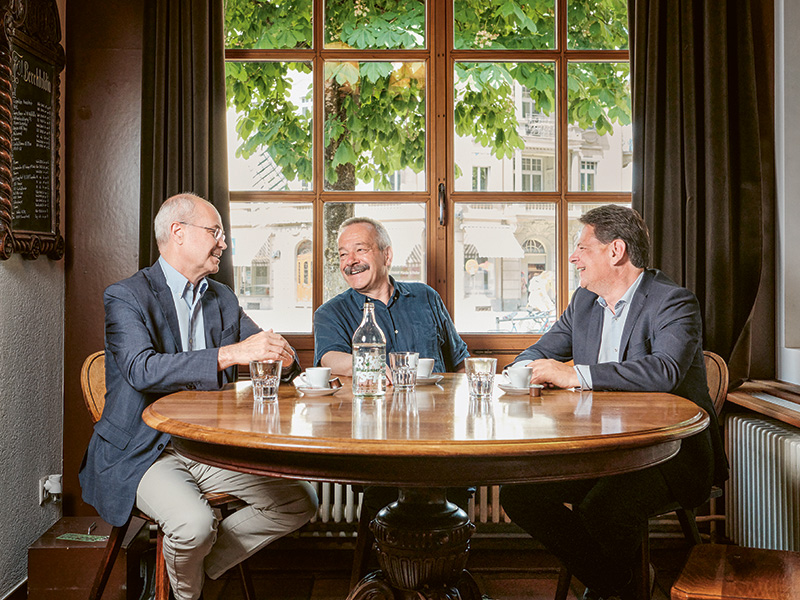
Vatter: The 2019 elections brought the victory of the Greens and the women. This raised high expectations. Then came COVID, and the new members of parliament never had time to build up their networks. It took a long time for Parliament to regain its footing. Overall I would say that the National Council has become more unpredictable and more willing to spend, and the Council of States lacks strong figures.
What about the adoption of important bills?Vatter: Some things came through, such as the OASI reform, the climate protection act and the pandemic proposals. However, there was not much movement on major dossiers such as Europe, healthcare costs and the revision of the second pillar. The COVID crisis, but also the war in Ukraine, contributed to this, but I doubt we would be any further with the European dossier or with regard to healthcare costs if there hadn’t been these crises. In addition, polarization in parliament remains high.
Holenstein: The European dossier has not only been up in the air since this legislation. The reasons for the blockade in the Federal Council are structural in nature.
Vatter: You have to differentiate: The Federal Council handled the COVID crisis surprisingly well. The old theory that the Federal Council is a fair-weather model has thus been refuted.
During crises, the Federal Council was able to act thanks to emergency legislation. But will our democratic processes still work if more and more emergency measures have to be taken?
Vatter: Formally, the Federal Council had a great deal of power. But informally, it constantly tried to involve the various political actors through consultations and round tables. The concordant pattern was also followed during the exercising of emergency legislation. I found overcoming the COVID crisis an impressive experiment: One of the most federal states in the world formally decided on an enormous concentration of power – but the government repeatedly brought parliament and the cantons into play in order to increase the legitimacy of its decisions. The experiment could have had much worse an end.
So you would give the Federal Council good marks?Vatter: In terms of overcoming the COVID crisis, yes.
Holenstein: The benefits of federalism came into their own during the COVID crisis. The Federal Council’s resolutions were implemented in the cantons, some of which handled things differently.
Lienhard: The financial situation must also be taken into account. Legislative planning is flanked by legislative financial planning. However, the latter has a neglected existence in that, unlike the federal decree on legislative planning, it is merely taken note of by parliament. At the moment, finances are getting out of hand.
About the person
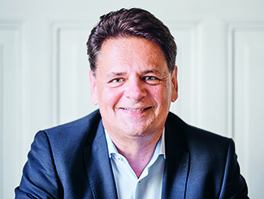
Adrian Vatter
has been Professor of Swiss Politics and Director of the Institute of Political Science at the University of Bern since 2009. Between 2003 and 2009 he was a professor at the Universities of Constance and Zurich. His research focuses on Swiss politics, empirical democracy studies in international comparison and political institutions (federalism, direct democracy, concordance).
What was the best decision of your life?
My return to the University of Bern as a political scientist focusing on Swiss politics.
Which day-to-day decision do you find difficult?
The decision about having a healthy breakfast.
Is there a decision you regret today?
No.
Lienhard: In part, yes, but other factors include additional expenditure due to demographics and the challenges of climate change. For the financial planning years 2025 to 2027, the federal government expects deficits in the billions, and new relief measures are needed. Parliament should be more involved financially in legislative planning. This would make it more accountable for long-term fiscal policy than with short-term budget planning.
How important is legislative planning in a system where governments do not change?Vatter: Alongside the budget and the financial plan, the four-year legislative planning and the annual targets are the most important planning instruments of the Federal Council. The problem is that their implementation often fails due to parliamentary, federal and direct democratic hurdles. Rather, they are a work program with a large number of objectives that are not coordinated.
Mr. Vatter, you called for a concordance agreement in the NZZ. Were you thinking in terms of a move in the direction of German conditions?Vatter: No, a concordance agreement is not as binding as a coalition agreement in which something can be claimed later. It would simply be a declaration of intent to set priorities and to define and agree on three main objectives for a legislative period.
Lienhard: Actually, there is the federal decree on legislative planning with three political guidelines. It says, for example: “Switzerland promotes national cohesion and contributes to strengthening international cooperation.” Is that not one of the main objectives of the proposed concordance agreement?
Vatter: Objectives should be defined in more concrete terms in a concordance agreement. You can’t be much more vague than what was just mentioned.
Lienhard: The federal decree also contains around 70 objectives for the guidelines, which are then very specific.
Vatter: That’s way too many. I am concerned with prioritizing the three main objectives.
What would it mean if the Federal Council adopted a concordance agreement?Vatter: It would mean that the Federal Council parties would publicly commit to this. It is not legally enforceable as in Germany. That’s the big difference. The much more important reform, however, would be a reform of the election procedure for the Federal Council. The Federal Council is a collegiate authority. But the procedure of successive individual elections is designed to the very opposite. A suitable procedure would be a list election in which several teams compete. This would allow for coalitions in which the two main parties might not always be represented.

Holenstein: Damage to our reputation. CS advertised underlying values of our country: Solidity, trustworthiness, reliability – values that ultimately made the banking center strong.
Why does the Federal Council resort to emergency legislation, especially in economic matters – such as CS, UBS, Axpo, Swissair?Lienhard: That has something to do with changing challenges. The social, economic and geopolitical situation has become significantly more complex and dynamic in recent years. There are more and more situations in which rapid action has to be taken. It is unthinkable what might have happened if Parliament had had to decide in the ordinary legislative procedure on the rescue of CS. But one thing is clear: These exceptional cases must not become the norm.
“The old theory that the Federal Council is a fair-weather model has thus been refuted.”
Adrian Vatter
The increased use of emergency legislation in economic matters is all the more astonishing given that Article 185 of the Federal Constitution provides for emergency legislation primarily in the event of disruptions to internal and external security.Lienhard: The wording is one thing, the interpretation as well as the teaching and practice are the other. The Federal Supreme Court ruled that economic stability and the protection of the financial market are also among the fundamental legal interests for which emergency legislation can be invoked. According to the assessment of the situation on the weekend of 17 and 18 March this year, the economy would have been hit hard by a collapse of CS. In this situation, the Federal Council was not only allowed to act, it was obliged to do so. However, emergency legislation must then be converted into ordinary law within six months. And there is the political reappraisal.
Holenstein: The accumulation of emergency legislation is also an expression of the fact that Switzerland is on thin ice in many areas. We pursue business models that are sometimes associated with high risks.
Lienhard: The world has also become more unpredictable. Two years ago, no one would have believed that there would be another war in Europe. Planning was made during the pandemic, but it was not taken seriously enough. After the UBS crisis in 2008, “too big to fail” regulations were created that were not really believed to be necessary.
Holenstein: The structures of late capitalism have indeed become extremely fragile. And yet politicians are not sufficiently aware of certain dangers. This is the result of the cunning way in which Switzerland has been doing business for centuries. Switzerland has always been very clever in managing structural differences with its neighboring countries. The financial center is an example of this. We have the mistaken feeling that we do not need to be integrated into a supranational structure on which we are fully dependent.
Mr. Lienhard, you are proposing a state-policy delegation that politically endorses the use of emergency legislation.Lienhard: It is about democratic legitimacy. As already mentioned, there is an obligation to convert emergency legislation into ordinary law after six months. The question is whether parliamentary co-determination is needed in the case of emergency legislation.
About the person
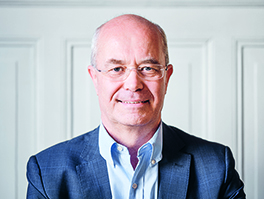
Andreas Lienhard
is Professor of Constitutional and Administrative Law at the Center for Public Management and at the Institute for Public Law at the University of Bern. He specializes in state and administrative reforms (in particular public management, public corporate governance, justice management, public private partnership), public finance and business law as well as legislation.
What was the best decision of your life?
To study law at the University of Bern.
Which day-to-day decision do you find difficult?
The decision about when to switch the computer off.
Is there a decision you regret today?
Not really, no.
Lienhard: The finance delegation is only responsible for the financial consequences of emergency legislation. Parliament has nothing to say about the emergency legislation as such. The formation of a new state policy delegation to participate in such cases would be a further step towards a stronger democratic legitimacy of emergency legislation.
However, the CS case also showed that it can be dangerous to restrict the freedom of action and the agility of the Federal Council’s action in an emergency situation. There are situations in which the Federal Council must be able to act very quickly in order to avert major damage.
Holenstein: Historically, however, it has to be said that we are far from what it was like after the Second World War, when the Federal Council ruled with powers of attorney for many years. That went on until 1952.
Regarding neutrality: Switzerland was also caught off guard by the war in Ukraine. The Federal Council was taken by surprise. Why weren’t we prepared in that case either?Holenstein: Switzerland suffers from an outdated doctrine of neutrality. We are still convinced that neutrality will get us through difficult situations, and we brilliantly ignore the fact that in an international system based on international law, neutrality is ultimately counter-systemic. Our problem today is that a security policy concept has become an identity policy feature.
Lienhard: It is a mistake to think that Switzerland has committed itself to “perpetual neutrality” under international law. The Hague Conventions of 1907 regulate the rights and obligations of neutral states in conflicts between states. However, the states involved are free to declare whether or not they are neutral in a specific conflict. Moreover, these Conventions could even be terminated. Constitutionally, however, the situation is slightly different. The concept of neutrality is enshrined in the Constitution. According to the prevailing teaching, a fundamental change in the understanding of neutrality would require a constitutional amendment. The war in Ukraine and the popular initiative launched last November have now rekindled the debate on neutrality.
Vatter: But my fear is that this initiative will lead to very doctrinal and identity-political discussions, especially among the conservative forces in this country …
Holenstein: The problem is that the neutrality initiative is intended to launch the European question once again …
Vatter: That’s right, and it’s not so much about neutrality as about re-managing the overarching conflict of openness or isolationism. This has been the dominant conflict in Swiss politics since the 1990s.
Lienhard: Where and how else should the discussion take place? I know of no other vehicle for a sufficiently wide-ranging discussion of the content of neutrality than a popular initiative.
“It is a mistake to think that Switzerland has committed itself to “perpetual neutrality’ under international law.”
Andreas Lienhard
Is the Federal Council looking good in the European dossier?Holenstein: What astonishes me most about the policy of the Federal Council is the still prevailing view that the EU must accommodate Switzerland. It fails to recognize how often the EU has accommodated Switzerland over the past 30 years.
Vatter: The basic problem is that we have a very strong elite-grassroots conflict on the question of Europe. There is no policy area in which the differences in attitudes between politicians and the population are greater than in the case of Europe. And since politics is always about the issue of majorities, the Federal Council acts very cautiously as long as it does not have the people and the cantons behind it.
Lienhard: The problem is also that the Federal Council does not have a strategy here either. I am convinced that it could win majorities with a clear strategy, continuity in negotiation management and good communication.
Finally, let’s return to Switzerland. Do you also have the impression that Switzerland has become a country of chasms?Vatter: Traditionally, we see the greatest line of conflict between left and right. Both in society and in parliament. There are also other chasms, such as the one between the city and the country. It is important to recognize that it is structurally difficult to bring the progressive voices of cities into national politics. The media perception, however, is different. If the country loses a referendum, as was the case with the Hunting Act, this is given far more attention than the many votes the cities have lost.
Holenstein: I’m not too bothered about these chasms. It was chasms that made Switzerland possible in the first place – Protestant against Catholic cantons, rural against industrial cantons, et cetera. Very often, however, these are crossed, balance each other out and certainly have a preserving and conserving effect.
Vatter: In societies with strong chasms, the concordance system is the one that works because it integrates all important social groups. And this is where the institutions – the Federal Council, direct democracy and federalism – play a key role in identifying with Switzerland. This is probably one of the reasons why it is so difficult to reform them.
Holenstein: But we have also set up a huge redistribution mechanism with the subsidies, with a well-developed public service that has made it possible for a PostBus to travel to the remotest valley. These transmission belts also bridge the chasms for many in the population.
“Switzerland pursues business models that are sometimes associated with high risks.”
André Holenstein
About the person
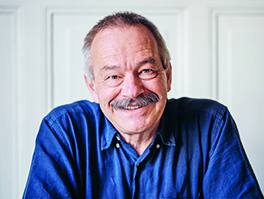
André Holenstein
is Professor of Early Swiss History and Comparative Regional History at the University of Bern. He is dedicated to researching and communicating the history of Switzerland from the late Middle Ages to the early 19th century. This sees the history of the “Corpus Helveticum” consistently embedded in cross-border, European contexts.
What was the best decision of your life?
To have decided, together with my childhood sweetheart, that we want to go through life together.
Which day-to-day decision do you find difficult?
None.
Is there a decision you regret today?
Absolutely – but because it is a personal matter, I won’t be mentioning it.
Lienhard: I see another line of conflict in federalism. It is an essential part of our identity, an expression of diversity and also an instrument of competition. However, if responsibilities between the Confederation and the cantons are too federalist, there is also the risk that we will no longer be able to fulfill certain tasks. The different regulations governing the obligation to wear a mask during the pandemic are a clear example of this.
Vatter: The rules of the game that strengthen the cantons are simply there and they are hardly going to be changed …
Holenstein: … which is still a legacy of 1848. Modern Switzerland only came about because it was possible to agree on a middle course between the extremely centralized unitary state from the Helvetic period and the federal statutes.
Vatter: The central question is therefore whether Swiss democracy in the 21st century should still be governed by the rules of the 19th century, which still provide special protection for the small Catholic rural cantons.
The University of Bern conducts cutting-edge research on topics that concern us as a society and shape our future. In uniAKTUELL we show selected examples and introduce you to the people behind them – gripping, multimedia and free of charge. This article first appeared in uniFOKUS, the University of Bern print magazine. Four times a year, uniFOKUS shows what academia and science are capable of. Thematically, each issue focuses on one specialist area from different points of view and thus aims to bring together as much expertise and as many research results from scientists and other academics at the University of Bern as possible.The online magazine of the University of Bern
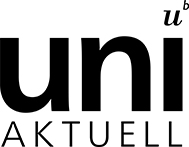
Subscribe to the uniAKTUELL newsletter
New magazine uniFOKUS

Subscribe free of charge now!